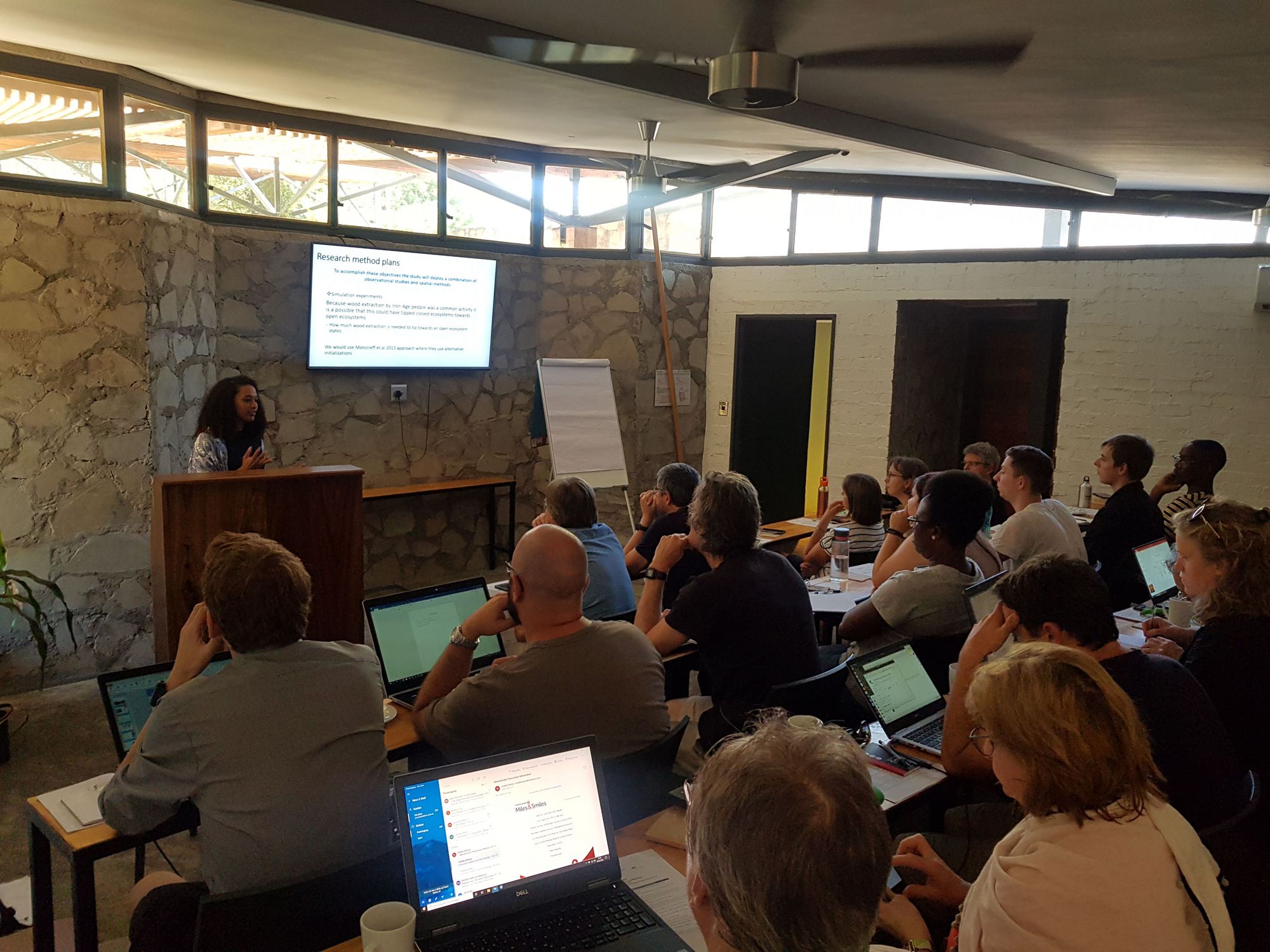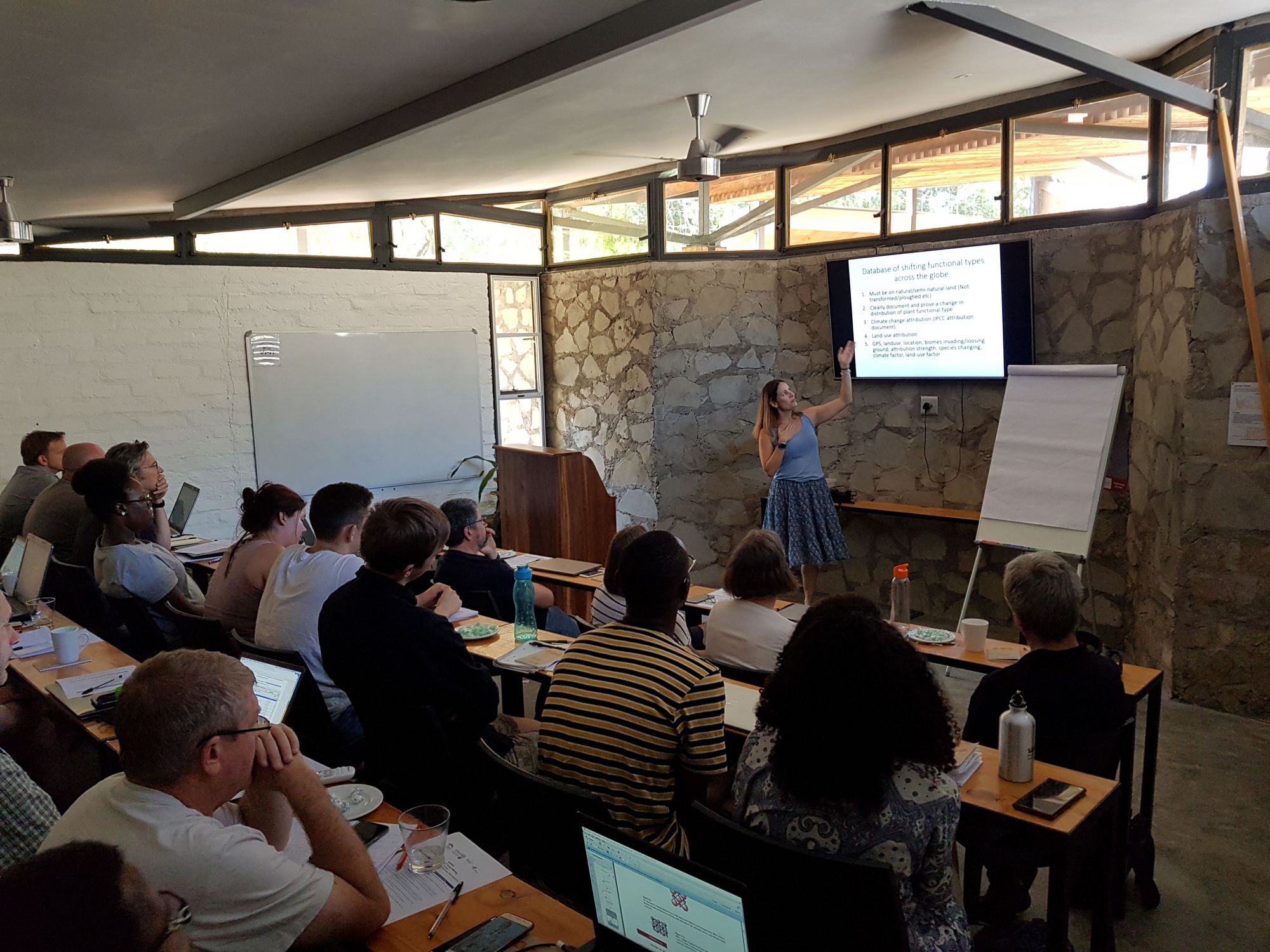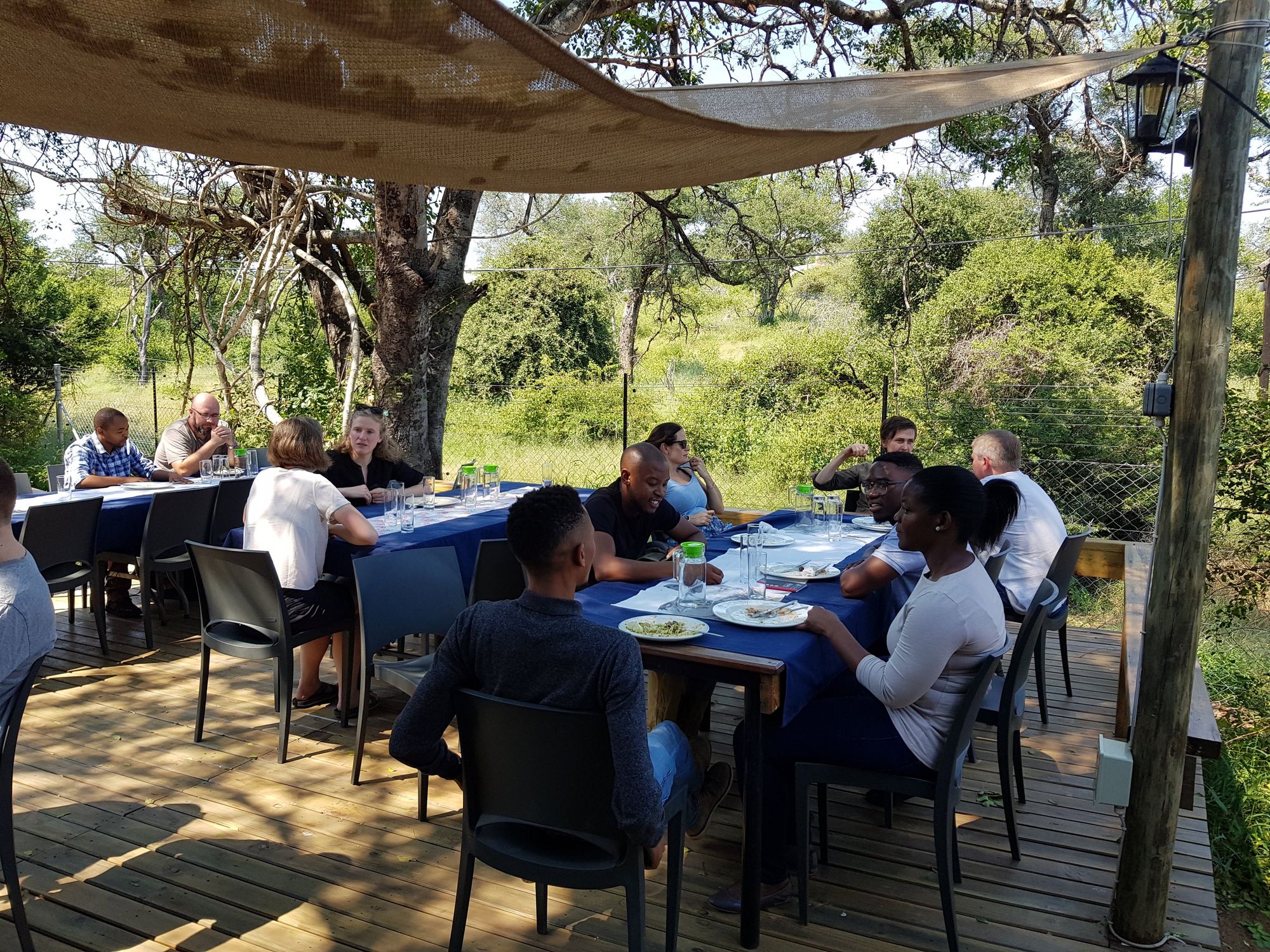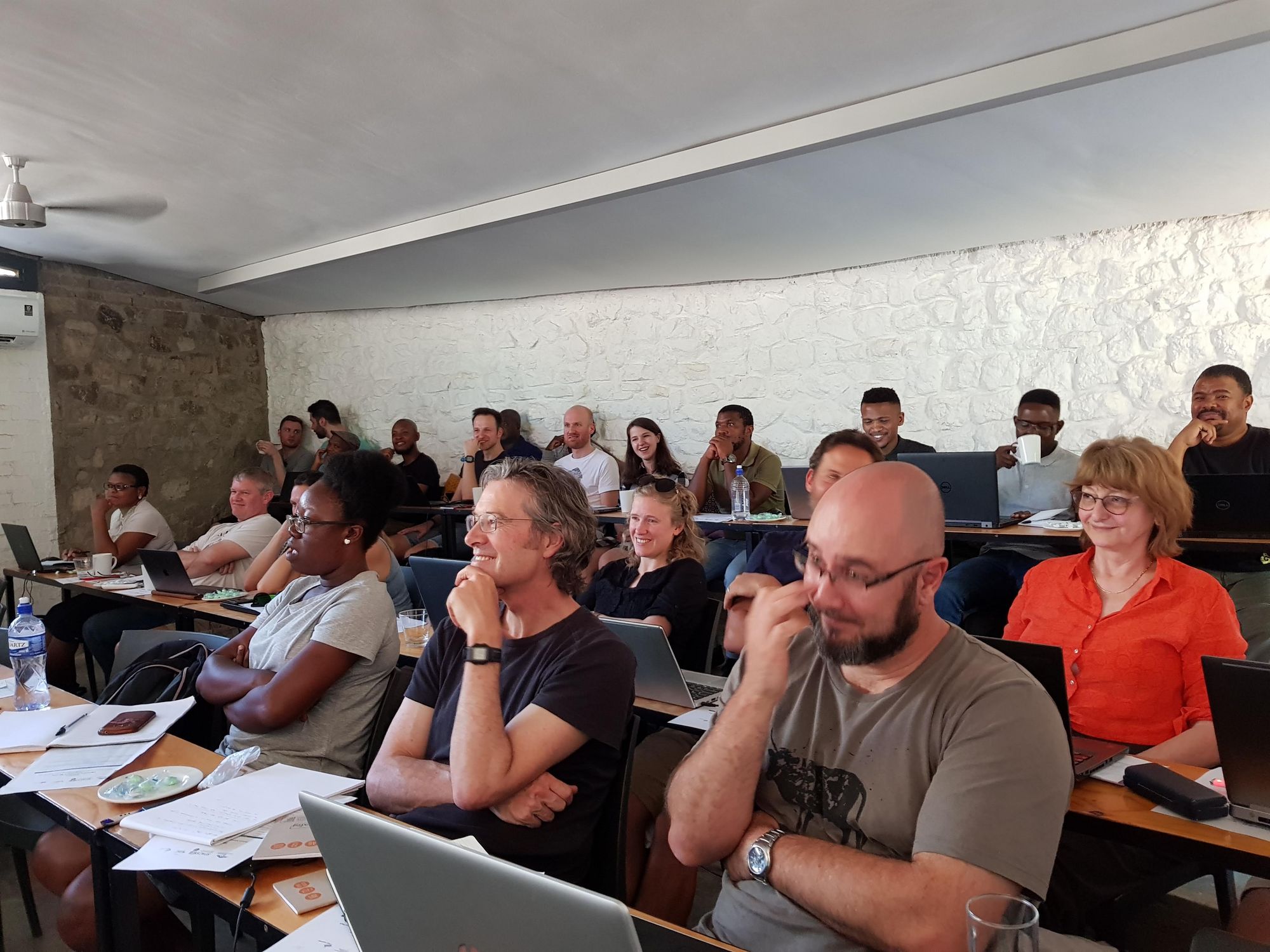10/03/20
EMSAfrica Annual Meeting 2019 successfully concluded at the Kruger National Park
The second annual meeting of our project took place on the 27.-29.2.2020 at the Skukuza Science Leadership Initiative Campus at the Kruger National Park in South Africa. We were joined by over 30 researchers representing the five subprojects of EMSAfrica. We are particularly happy and appreciative about the high participation of the South African side of our tandem project – the majority of our meeting attendants were South Africans.
On the first day of the meeting, we heard research presentations and initiated lively discussions on future collaborations. The excellent inputs of our doctoral researchers need to be acknowledged here: Carola Martens and Ulfia Lenfers are about to finish their PhD theses on EMSAfrica. Carola presented her work on Climate impacts on carbon stocks, biomes and protected areas across Africa and Ulfia gave an overview of her results on Modelling current and future tree distributions through agent-based modelling. Oksana Rybchak presented her PhD plans on studying the impact of grazing and water availability on ecosystem-atmosphere carbon exchange in the Karoo.
Furthermore, three of our new six doctoral researchers that get funding via the DAAD CaBuDe programme joined the meeting. Amy Schroeder presented her plans on studying the impact of iron-age settlements as drivers of alternative ecosystem stages in savannas, Amukelani Maluleke presented his plans of studying carbon, water and energy fluxes at the Benfontein new flux tower site, and Kuhle Ndyamboti talked about developing a multi-scale remote sensing approach to study vegetation dynamics in the Nama Karoo.
This year, we organised a full-day workshop dedicated to stakeholder engagement. Our subproject leaders presented the EMSAfrica work through short presentations and invite active discussion from the group of stakeholders. Our invited key stakeholders included representatives of South African governmental and non-governmental institutions that are active in field of global change research and policy, including SAEON, DEFF, SANParks, CSIR, and the UNESCO Kruger to Canyons Biosphere Reserve.
The discussions and breakout sessions provided us with many valuable ideas regarding fine-tuning our research plan, as well as finding ways in which we can contribute to land management and decision making in South Africa.
We thank all participants for making this an unforgettable meeting, and Laurence Kruger and the staff at the SSLI for excellent, friendly atmosphere, superb facilities and delicious meals!



